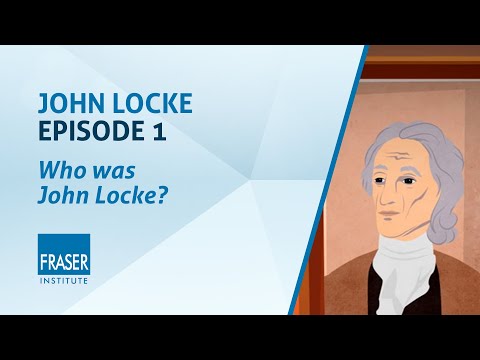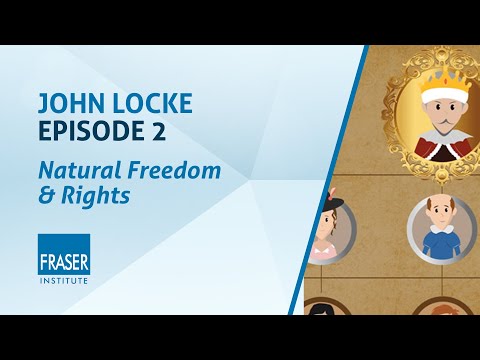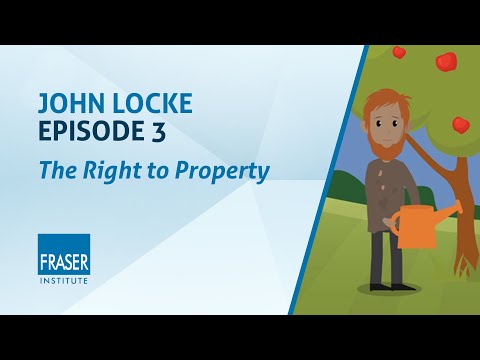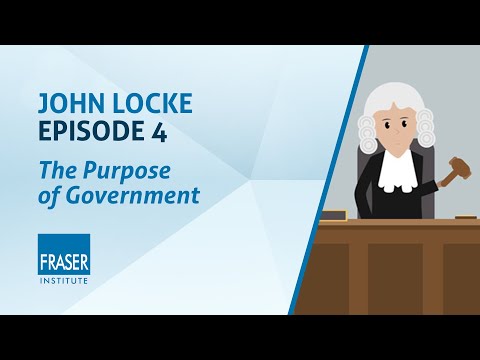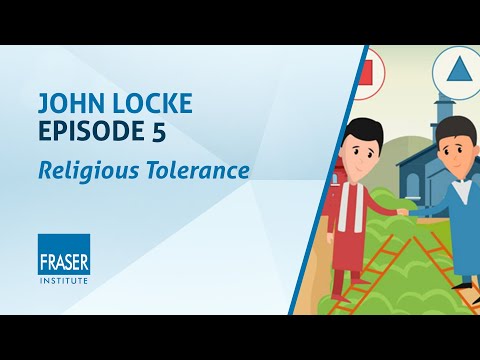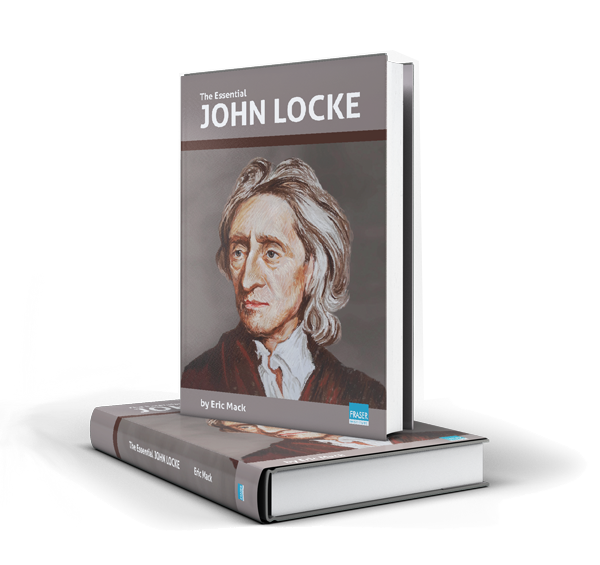by Eric Mack
No single individual is ever the sole founder of any major stance in political philosophy—or in any other field of human inquiry. For, knowingly or unknowingly, every theorist makes important use of ideas and contentions previously developed by other thinkers. Nevertheless, if one were forced to name the founder of the classical liberal perspective in political thought, one would have to point to the English philosopher John Locke (1632–1704).
When John Locke was born on August 29, 1632, in Wrington, Somerset, England, he entered a world riven by intense religious and political conflict. This conflict reached its greatest intensity in the Civil Wars of 1641–1649 and the rump Parliament’s trial and execution of Charles I in January 1649. It re-emerged in the political and conspiratorial challenges to Charles II from the mid-1670s to mid-1680s and continued through the Glorious Revolution of 1688. Locke studied at the prestigious Westminster School and Christ Church, Oxford. From the late 1660s into the early 1680s he was physician and intellectual aide in the household of the Earl of Shaftesbury, who became the leader of the political forces opposed to the authoritarian tendencies of Charles II.
The Two Treatises of Government were drafted around 1680 in support of Shaftesbury’s attempts to limit monarchical authority. Locke fled to Holland in 1683 after the Rye House plot to assassinate Charles II and his brother James was discovered. A Letter Concerning Toleration was written while Locke was in Holland and probably working to support continued resistance in England to the rule of James II (who had succeeded Charles II in 1685). Both works were published toward the end of 1689 after Locke returned to England following the Glorious Revolution of 1688.
Throughout the 17th century, there was profound conflict across Britain about which religious doctrines and practices were to be mandated by state authority. Most of the parties to disputes concerning religion and the state accepted the premise that the head of state had the right to decree what religion his or her subjects would follow—as long as the sovereign chose the true religion. The only question among these disputants was which religion was the true one that should be imposed by the sovereign. However, further disputes arose between those who accepted the premise that rulers have the right to enforce religious uniformity and advocates of principles of toleration who maintained that rulers must respect the liberty of conscience of their subjects. Britain was also convulsed by a parallel but more general dispute about who possessed ultimate political authority. Was it the monarch? Or was it Parliament? Or was authority somehow divided among different political bodies? Most of the parties to these disputes shared the premise that whoever has political authority has absolute, unlimited political authority.
However, the premise that political authority must be unlimited in its scope came under attack as theorists developed or refined the idea that political authority exists only for certain limited purposes and that when rulers pursue other purposes their actions transgress those limits. Not surprisingly, the contention that the scope of political authority is limited was opposed by defenders of the idea that all sovereigns must have unlimited authority. Locke’s political philosophy fundamentally rejects the doctrine of unlimited, unchecked, political authority as put forward, especially, by Robert Filmer (1588–1653) and Thomas Hobbes (1588–1679). In his Second Treatise of Government and his A Letter Concerning Toleration, Locke synthesizes the arguments for religious toleration and the more general contention that toleration must be extended to all peaceful activities. Locke argued that liberty and not authoritarian control is the basis for a peaceful and prosperous society. As The Essential John Locke explains, the ultimate ground for Locke’s anti-authoritarian advocacy of toleration and liberty is his affirmation of each individual’s possession of natural rights that all other persons—especially political sovereigns—are obligated to respect.
The political conflicts and philosophical disputes that raged in Britain throughout most of the 17th century were, of course, different in their details from the conflicts and disputes of our early 21st-century world. Yet, the fundamental issues are remarkably similar. They include the nature and sanctity of human freedom, the relationship between respect for freedom and the maintenance of social order, the basis and scope of justified toleration, the justifying purpose of government, and the fundamental limits (if any) on governmental authority. Locke’s classical liberal political philosophy speaks to each of these issues (and more).
Classical liberalism is the view that the primary political principle is that individual liberty is to be respected and protected. Individual liberty ranges across both “personal” and “economic” choices. It includes the liberty to decide for oneself what religion one will follow, what aesthetic or cultural values one will prize and pursue, and what personal interactions one will enter into with others (who also choose those interactions). Individual liberty also includes one’s liberty to develop one’s economic capacities as one chooses, to pursue a career of one’s choice, to acquire property as a means of carrying out one’s life plans, and to use one’s acquired property as one chooses—again with the proviso that one’s actions do not deprive others of their like liberties.
Classical liberalism sees each individual as having a moral sovereignty over his or her own life that no individual or group may properly invade or nullify. This does not mean that classical liberalism celebrates a world in which everyone lives in splendid isolation. Rather, it celebrates society as a voluntary association of individuals each of whom is free—singly, but much more likely, in cooperation with others—to pursue his or her own chosen ends in his or her own chosen, albeit liberty respecting, ways. A key component of classical liberalism is the view that individual liberty is at the least the primary source of desirable social and economic order. Desirable social and economic order arises from the ground up. Since ground-up order will reflect the diverse desires, ambitions, knowledge, and capacities of the individuals who make up such an order, such order will necessarily be more complex, vibrant, and dynamic than any order that might be imposed from the top down by social engineers and state planners.
Coercion is the great enemy of liberty and of the benefits of freely chosen cooperative endeavours. From the classical liberal perspective, the only acceptable coercion is coercion that is provoked by and directed against unprovoked coercion. Coercion—especially understood as the use of physical force or the threat of such use—may be employed only in defence of the liberty of individuals and the associations they voluntarily form. The distinctive feature of political institutions, that is, of governments, is their possession and use of coercive power. Hence, the classical liberal’s endorsement of respect for and protection of individual liberty as the primary political principle yields a demand for radical limits on state power and action.
Locke never married and during his later years lived with the family of Lady Damaris Cudworth Masham at Oates in High Laver, Essex. He died on October 28, 1704 and was buried in the churchyard of the village of High Laver.
Download the Book
Get a digital copy of the book. Choose the version you prefer below.
Explore the Book
Chapter by chapter summary of the book.
-
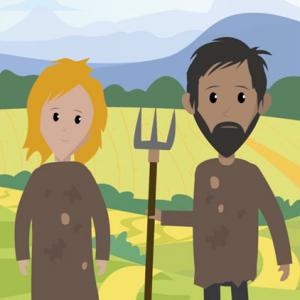
Chapter 1
The State of Nature and the Law of Nature
In his Second Treatise of Government, Locke follows Hobbes in approaching political philosophy through state-of-nature theory. According to both Hobbes and Locke, a group of individuals are in a state of nature (relative to one another) if they are not subject to a common governmental authority. Being in a state of nature is our original, baseline condition because no one is born subject to political authority. Our birth—or, to put matters more precisely, our entrance into adulthood—does not brand us with an obligation to obey those who aspire to rule over us. Nor does their birth—or their entrance into adulthood—bestow on them the right to rule us. Although we are not literally born as “free and independent” beings, we are born to freedom and independence in the sense that we each attain this status when we reach adulthood.
In our original natural condition, we are equally and perfectly free. There is no natural hierarchy of ruler and subjects. This view was dramatically expressed by Richard Rumbold before his execution on June 26, 1685 for his participation in the Rye House plot: “No man is born marked by God above another, for none comes into the world with a saddle on his back, neither any booted and spurred to ride him”. Since there is no natural political authority, it seems that, if some party has a right to rule while others have correlative obligations to obey, that right and those obligations must have been created by the individuals in the course of exiting from the state of nature. State-of-nature theory investigates whether people have good reason to exit the state of nature by creating and placing themselves under the sway of governmental power.
-
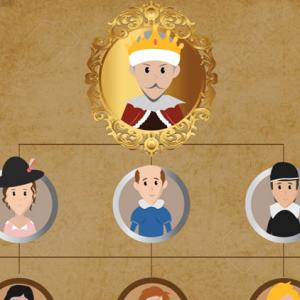
Chapter 2
Natural Freedom
The main goal of this chapter is to spell out Locke’s understanding of freedom and highlight how it differs from the view that freedom is a matter of doing whatever one wants to do. Locke, as a classical liberal, holds that everyone has a right to freedom—but not a right to do whatever one wants to do.
Hobbes and Locke seem to agree that all individuals (who have reached the age of reason) are naturally equal and free. However, for Hobbes, this natural equal freedom is a matter of no one being naturally subject to any other person or to any constraining principles of law or justice. For Hobbes, to be free is to be able to do whatever one desires to do. Any constraint on how one may act constitutes a denial of freedom. In contrast, Locke holds that our natural equality and freedom is a matter of each of us having a natural right against being subordinated to the will of others. Our freedom consists in others not subordinating us to their will. The freedom of others is not compromised when they are required not to subordinate us to their will—even if they desire to engage in such subordination. The freedom of others is compromised only if they are subordinated to our will. A corollary of each person’s right to freedom is each other person’s obligation not to infringe upon that freedom.
-
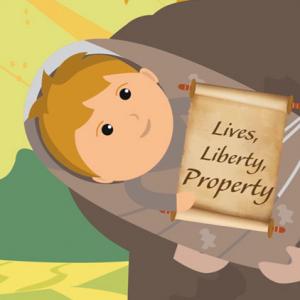
Chapter 3
Natural Rights
In this chapter, I present Locke’s arguments for each person possessing a natural right to freedom. Locke’s view is that each person’s right to freedom takes the form of each person’s rights over his or her own person and his or her possessions. The right to freedom and the right not to be deprived of discretionary control over one’s person and possessions are two sides of the same coin. In addition, Locke equates infringements on one’s freedom with being subordinated to the will of others. Thus, Locke’s arguments for respect for individual freedom sometime focus on the reasons we each have to demand freedom for ourselves and to acknowledge others’ like demand for freedom; sometime focus on the claim that each of us has against being harmed “in his life, health, liberty, or possessions”; and sometime focus on the reasons that it is unjustified for any individual to be subordinated to the will of another.
-
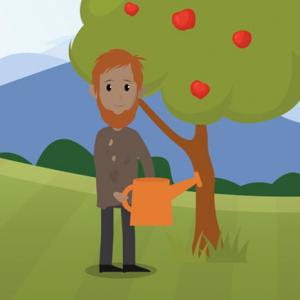
Chapter 4
Property Rights
Locke tells us that the right to freedom includes the right to do as one sees fit with one’s possessions. Yet he cannot mean the right to do as one sees fit with whatever one actually possesses for he does not think that one has rights to do as one sees fit with objects one has acquired illicitly, that is, through theft or fraud. Such a right would conflict with the rights of the victims of theft and fraud to do as they see fit with their possessions. So, Locke needs a theory of property rights that explains why certain methods of acquisition engender rights to the acquired objects and why other methods of acquisition do not engender such property rights.
In his First Treatise, Locke argues that, since “Man should live and abide for some time upon the face of the Earth”, he must have a right “to make use of those things, that were necessary or useful to his Being”. If human beings are to have a chance of achieving commodious preservation, they must have the opportunity to use and, indeed, exercise discretionary control over objects that are external to their own persons, for instance, acorns, plows, and fields cleared for cultivation.
-
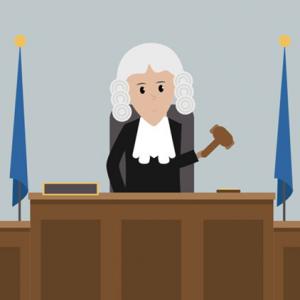
Chapter 5
Inconveniences of the State of Nature and Their Remedy
Recall that, besides rights to life, liberty, and estate, each individual possesses by nature rights to engage in self-defence, to extract restitution for rights-violating losses, and to punish rights violators. If Abe attempts to enslave Bea on the isolated island that they inhabit, Bea may use force (or deception) to thwart Abe. If Abe manages to enslave her, Bea has the right not only to escape but also to extract reparations from Abe and to punish Abe for his violation of her right to liberty. Locke refers to these rights to protect and enforce the rights of life, liberty, and estate as “the executive power of the law of nature”.
Locke holds that in the state of nature—especially prior to the introduction of money—most people will be inclined to comply with others’ rights to life, liberty, and estate, at least when they expect reciprocal compliance by others. However, this is not true of all people. People who do not consult reason, which teaches us that we are each equal and independent beings who are not to be subordinated to others, may well not abide by core laws of nature. Others may consult reason and, thus, be aware that each person is “absolute lord of his own person and possessions” and yet still tend to behave “as beasts of prey”. Some people may desire “the benefit of another’s pain” and, hence, attempt to seize the labour of others or the products of their labour or the goods these others have acquired through voluntary exchange.
-
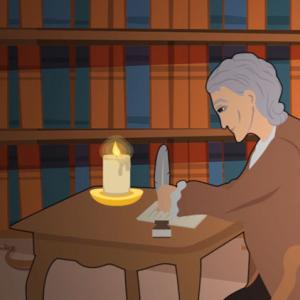
Chapter 6
The Obligation to Obey Legislation and Its Radical Limits
In this chapter, I address Locke’s view about why individuals are obligated to abide by the legislation that is enacted by government as long as those enactments accord with the purpose that Locke sets forth for governments, viz., to better articulate and enforce their rights of life, liberty, and property.
One of the four or five major themes most commonly associated with Locke’s political doctrine is the claim that each individual’s obligation to obey the legislation of the government under which he lives rests on that individual’s consent. A government’s authority to impose its statutes on its subjects must derive from the consent of the governed. Locke tells us that “[m]en being … by nature, all free, equal, and independent, no one can be put out of this estate, and subject to the political power of another, without his own consent”. Similarly, since every person is naturally free, nothing can “put him into subjection to any earthly power but only his own consent”. Locke is especially eager to maintain that sons cannot be bound by the consent of their fathers: “a child is born a subject of no country or government … there is no tie upon him by his father’s being a subject of this kingdom; nor is he bound up by any compact of his ancestors”.
-

Chapter 7
Toleration
Locke’s A Letter Concerning Toleration (1689) is his second best-known work in political philosophy and is one of the great essays on behalf of religious toleration. Locke defends toleration for all Protestant sects and, much more radically, for Jews and Muslims. However, Locke did not advocate full toleration for Catholics and atheists. This was not because of Catholic or atheist doctrine as such but, rather, because Catholics and atheists were politically suspect. According to Locke, Catholics were suspect because of their political loyalty to the Pope and often to the tyrannical Catholic monarchies in Spain or France. Atheists were politically suspect because they could not take themselves to be bound by their oaths to God.
-

Chapter 8
Resistance against Unjust Force
This final chapter will describe Locke’s bold doctrine of justified forceful resistance against state agents—monarchs, legislators, or their henchmen—that encroach upon the rights of individuals and of political society. Recall that Two Treatises of Government was largely composed in the early 1680s. When it was published in 1689, it was seen—and served—as a justification after the fact for the Glorious Revolution of 1688, which deposed James II, the successor to Charles II. However, it was initially composed in support of attempts by Locke’s patron, Lord Shaftesbury, to check the power of Charles II.
As was mentioned in the Introduction, a deep premise of Locke’s doctrine of justified resistance is that state agents, including heads of state, are subject to the same fundamental moral constraints as ordinary persons. If a certain type of action by a private individual violates the rights of another individual, an action of the same type performed by a state agent will also violate that individual’s rights. If it is a violation of Abe’s rights for Bea to lock him up in her backyard shed for entering into economic competition with her or her friends, it is also a violation of Abe’s rights for the monarch or the legislators to lock Abe up in the Tower of London for entering into economic competition with the monarch or the legislators or their cronies. If it is criminal for Bea to burn Abe at the stake in her backyard for rejecting the doctrines of Bea’s church, it is equally criminal for the monarch to burn Abe at the stake in the town square for rejecting the doctrines of the monarch’s church.
About the Author

Eric Mack
Eric Mack is Emeritus Professor of Philosophy at Tulane University. As a member of the Department of Philosophy and a faculty member of the Murphy Institute of Political Economy at Tulane, he taught courses in ethical theory, the philosophy of law, political economy, political philosophy, and the history of political theory. His primary scholarly project has been the refinement and extension of the sort of natural-rights doctrine that John Locke advocated in his political writings.
To that end, he has published about 100 scholarly essays on the moral foundations of natural rights, the basis and nature of property rights, economic justice, the nature of law and of spontaneous economic and social order, the scope of legitimate coercive institutions, and the exploration of these topics by 17th and 19th century classical liberal and libertarian theorists. He is the editor of Auberon Herbert’s The Rights and Wrongs of Compulsion by the State and Other Essays (Liberty Press) and Herbert Spencer’s The Man versus the State (Liberty Press). He is also the author of John Locke (Bloomsbury Press) and, most recently, Libertarianism (Polity Press).
He exercises his freedom and rugged self-reliance by hiking and backpacking in the mountains and canyon country of the American West.
Additional Resources
Listed below are links to other websites and resources where you can learn more about John Locke, his written works, his lectures, and interviews.
Listed below are links to other websites and resources where you can learn more about John Locke, his written works, his lectures, and interviews.
Locke’s Life and Major Works
A Stanford Encyclopedia of Philosophy entry which brings together a biography of John Locke’s life, including sections on his major works, including The Two Treatises of Government and his books on the limits of human understanding.
JohnLocke.net
This website contains a biography of Locke’s life broken into three portions, and copies of his major works including An Essay Concerning Human Understanding and the Two Treatises of Government.
Biography and Political Philosophy
A biographical account of John Locke’s life and the evolution of his political philosophy as evidenced by his published works.
Brief Biographical Account of Locke’s Life
This History article briefly summarizes the life of John Locke and the effects of his works and ideas.
Video: School of Life on Locke
A short informational video covering Locke’s life and the evolution of his thought.
Video: Lecture on Locke’s Political Philosophy
After giving an overview of Thomas Hobbes, Professor Charles Anderson goes on to discuss the thought of John Locke. This is from a course on Political, Economic and Social Thought given at the University of Wisconsin.
Collection of John Locke’s Works
Put together by the Liberty Fund’s Online Library of Liberty, this website compiles links to many of Locke’s major works, all downloadable in PDF format.
John Locke Foundation
A short biography and extensive annotated list of Locke’s works and pieces written about his philosophy.
Locke’s Political Philosophy
A Stanford Encyclopedia of Philosophy entry on the major concepts in Locke’s political philosophy, such as natural law and natural right, property, consent, political obligation, and the ends of government among several other major concepts.
Introduction to Locke’s Ideas
An introduction to Locke’s major philosophical ideas published by Great Thinkers.
Audio: History of Political Philosophy
This lecture by David Gordon, senior fellow at the Mises Institute, is a part of his History of Political Philosophy lecture series. It explains why Locke is often referred to as the “father of classical liberalism.”
Natural Rights to Life, Liberty, and Property
A biographical piece on John Locke, stressing his links to the American Constitution and the rise of liberal democracy. This work was published by the Foundation for Ecnomic Education and was written by Jim Powell, a CATO Institute senior fellow and expert in the history of liberty.
Locke on Freedom
A Standord Encyclopedia of Philosophy entry on Locke’s theory of human freedom contained within his Essay Concerning Human Understanding.
John Locke and the Natural Law Tradition
Written by Steven Forde, a professor at the University of North Texas, this essay traces the effects of Locke’s philosophies of natural law and natural right to the Western political systems of today.
Libertarianism.org John Locke Series
This series, written by George H. Smith, covers many of Locke’s most influential ideas from a libertarian lens, including private property, labour, and money. Use the green bar above the title of the article to navigate through this series.
Locke on Limited Government
This blog shares links to five of its postings which use chapters of the Second Treatise of Government to lay out Locke’s argument for limited government. The blog is written by Miles Kimball, who holds the Eaton Chair in Economics at the University of Colorado Boulder and is Emeritus Professor of Economics and Survey Research of the University of Michigan.
IR Theory and Locke
This article, written by Michael Lind, applies Locke’s political philosophy to contemporary debates in IR theory, concluding that Locke’s ideas more closely align to classical realism than to liberalism.
Essential Scholars is brought to you by
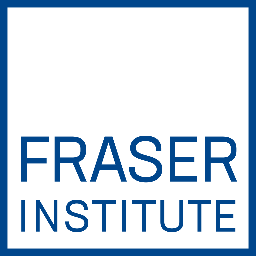
Fraser Institute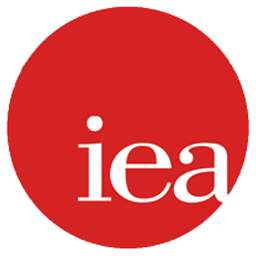
Institute for Economic Affairs
Institute of Public Affairs
Foundation for Economic Education
Acknowledgements
Made possible by generous grants from the Lotte and John Hecht Memorial Foundation, the John Templeton Foundation, and the Peter and Joanne Brown Foundation.
